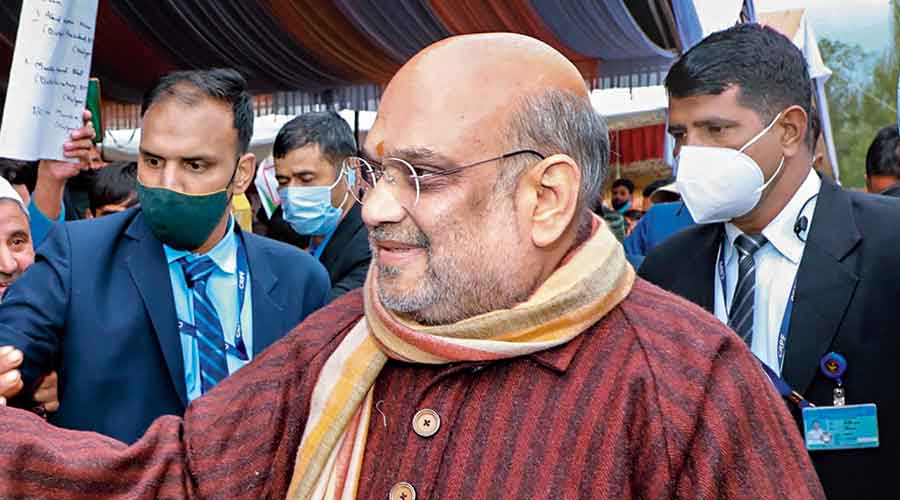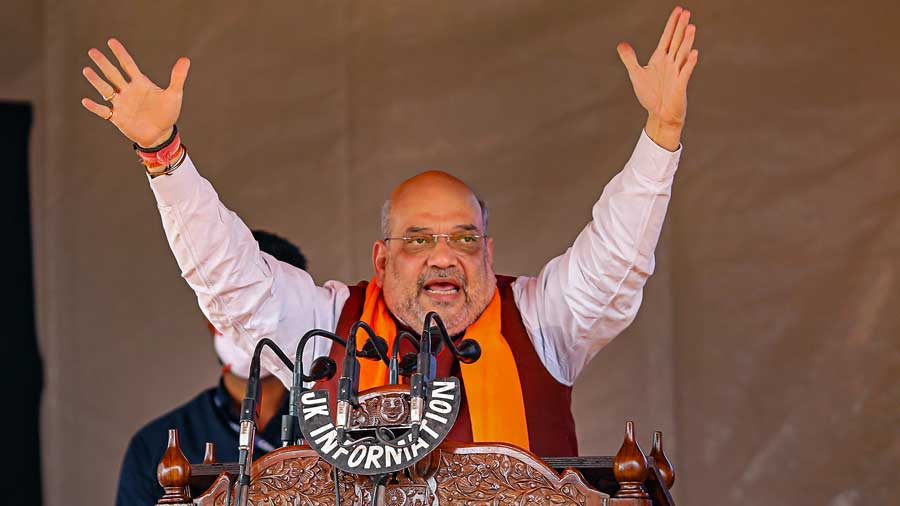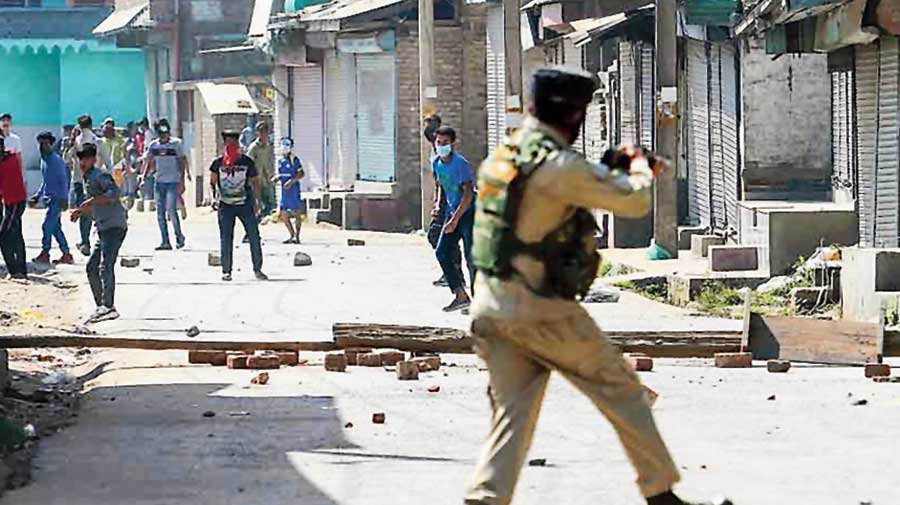Jammu and Kashmir police have booked unnamed students of two premier medical colleges in Srinagar under the stringent anti-terror law for celebrating Pakistan’s victory over India in the T20 World Cup, sources in the force said on Tuesday.
The purported action came barely three days after Union home minister Amit Shah extended the “hand of friendship” to Kashmir’s youths and said only they, and not the government, could stamp out terrorism.
Although the police have not officially commented on the purported action, the sources said an unknown number of medical students had been booked under the Unlawful Activities Prevention Act (UAPA) for “insulting the national sentiment”.
Footage of students, purportedly from the Sher-e-Kashmir Institute of Medical Sciences and the Government Medical College in Srinagar, bursting firecrackers, raising slogans, some of them in favour of Pakistan, and dancing after the match were widely shared on social media.
According to the sources, the students have been booked under Section 13 of the UAPA, which deals with crimes that advocate, abet, advise or incite the commission of any unlawful activity. The UAPA, usually used against terrorists, allows for detention without trial for up to six months and carries a maximum punishment of seven years’ imprisonment.
Any official crackdown would mean India is going far beyond the political posturing behind the Tebbit test in Britain. Conservative Party member Norman Tebbit had whipped up suspicions among the white majority in 1990 by suggesting immigrants and their children could not show loyalty to Britain until they supported the England team at cricket.
On Tuesday, a prominent students’ outfit in Jammu and Kashmir appealed to the government not to ruin the careers of the medical students.
Erstwhile BJP ally and former chief minister Mehbooba Mufti raised a point that few at the Centre would acknowledge.
Mehbooba tweeted: “Instead of trying to ascertain why educated youth choose to identify with Pakistan, GOI (Government of India) resorting to vindictive actions. Such steps will alienate them further.”
On Sunday, parts of the Valley had erupted in celebration soon after Pakistan defeated India in the T20 World Cup match. The celebrations capped a day on which the administration of lieutenant governor Manoj Sinha was busy hosting Union home minister Shah.
A police officer said on the condition of anonymity that the FIR, lodged at Soura police station in Srinagar, was “open” and no student had either been named or arrested so far.
Ravinder Raina, the BJP’s Jammu and Kashmir president, asserted that all those who had cheered for “enemy country” Pakistan would land in jail.
In Jammu’s Samba, the police have detained six people after a video showed them celebrating Pakistan’s victory and raising “objectionable slogans”.
Nearly four decades ago, a cricket match had unwittingly become the staging ground for events that were partly blamed for the spurt in militancy.
“Pro-azadi” crowds had cheered for Clive Lloyd’s West Indies on October 13, 1983, during the match against Kapil Dev’s India at the Sher-e-Kashmir Stadium in Srinagar. It was the first international cricket match in the Valley.
Some in the crowd had waved pictures of Pakistani players and booed Indian players.
Several youths, angry that India had hosted an international match in the “disputed region”, had invaded the pitch during the lunch break and dug holes in it. The damage was not severe enough to halt the match. The West Indians won a match truncated by bad light and a dust storm by 28 runs.
The conduct of the spectators had been criticised in the rest of the country. The youths were booked for waging war against the country, another name for sedition. A Srinagar court in 2011 acquitted 12 men for lack of evidence.
A number of these Kashmiri youths went on to play a key role in starting the armed insurgency in 1989.
“They were kids then but were arrested and booked for waging war against the country. They were put in jail for months. Years later, many of us picked up the gun because of continuous harassment,” a separatist leader, a relative of one of those acquitted, told The Telegraph on Tuesday.
But this time, there have been no law-and-order violations like a pitch invasion.
“We live in altogether different times. This government does not tolerate people celebrating a cricket victory even in their homes. I am worried this government might destroy the careers of these students. Such actions only trigger more alienation,” the separatist leader said.
The second and last time Kashmir hosted an international cricket match was in 1986 when India played Australia. The state government had made elaborate security arrangements. The Sher-e-Kashmir Stadium ceased to be an international venue after that, mainly because of militancy.













